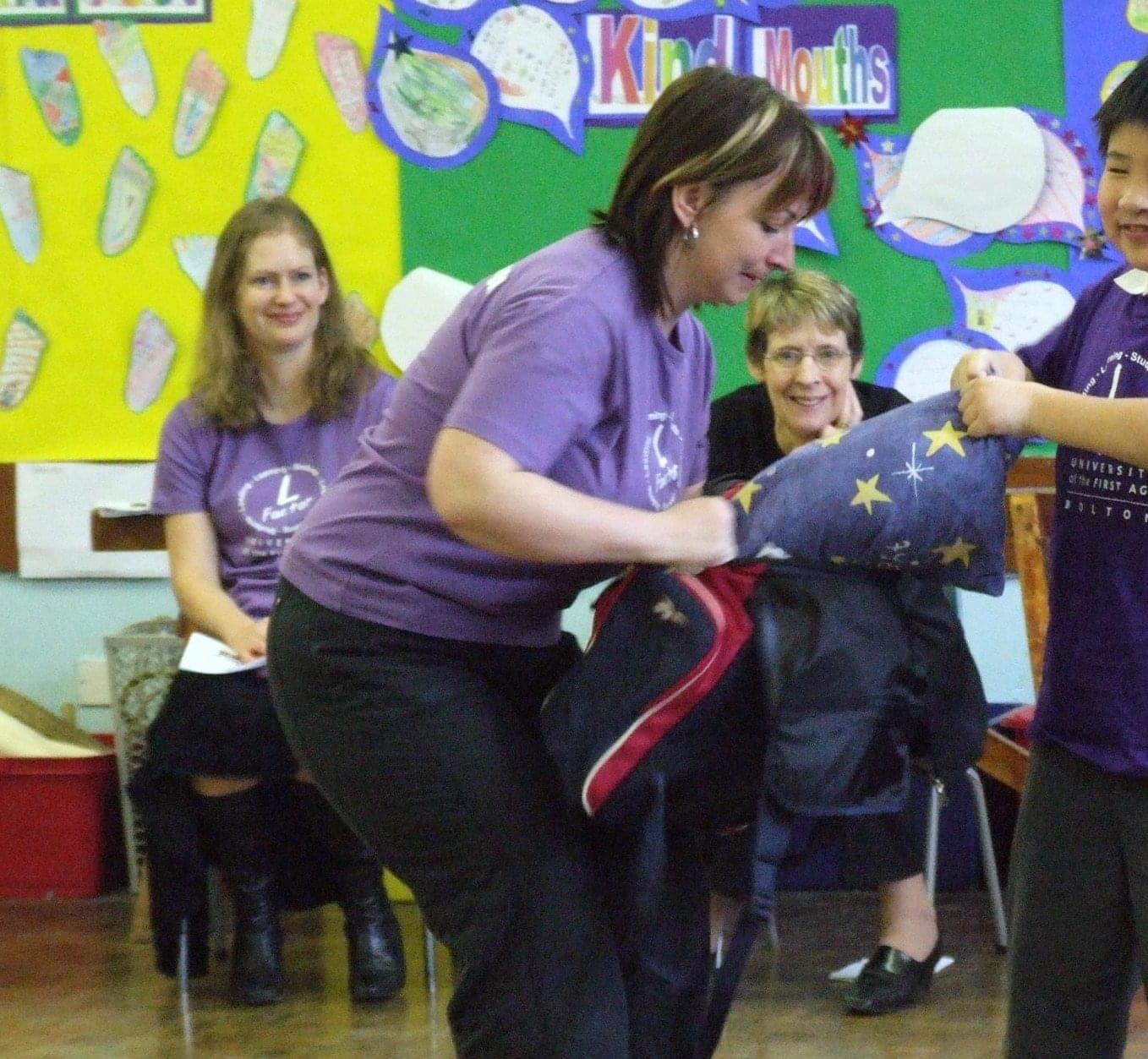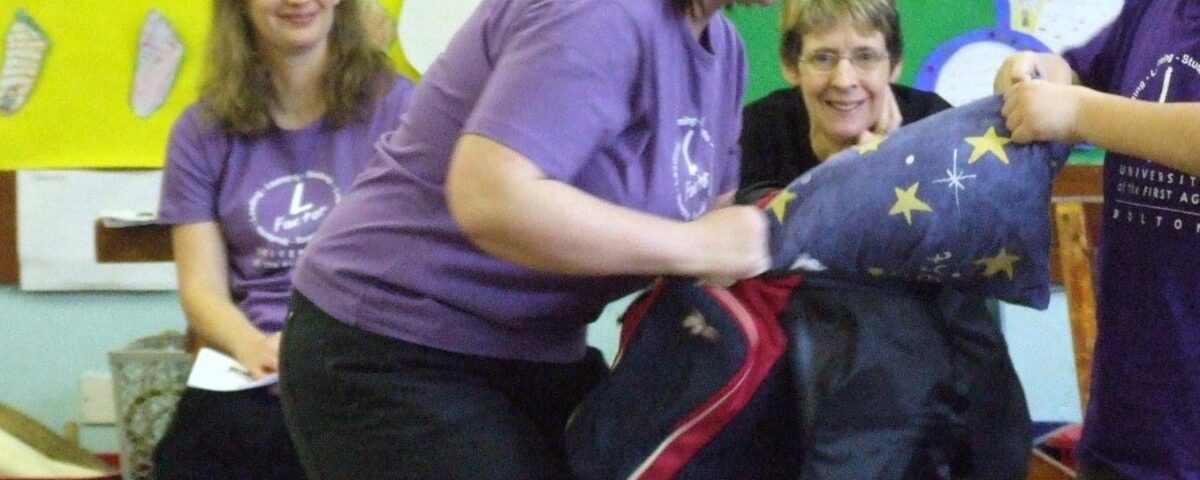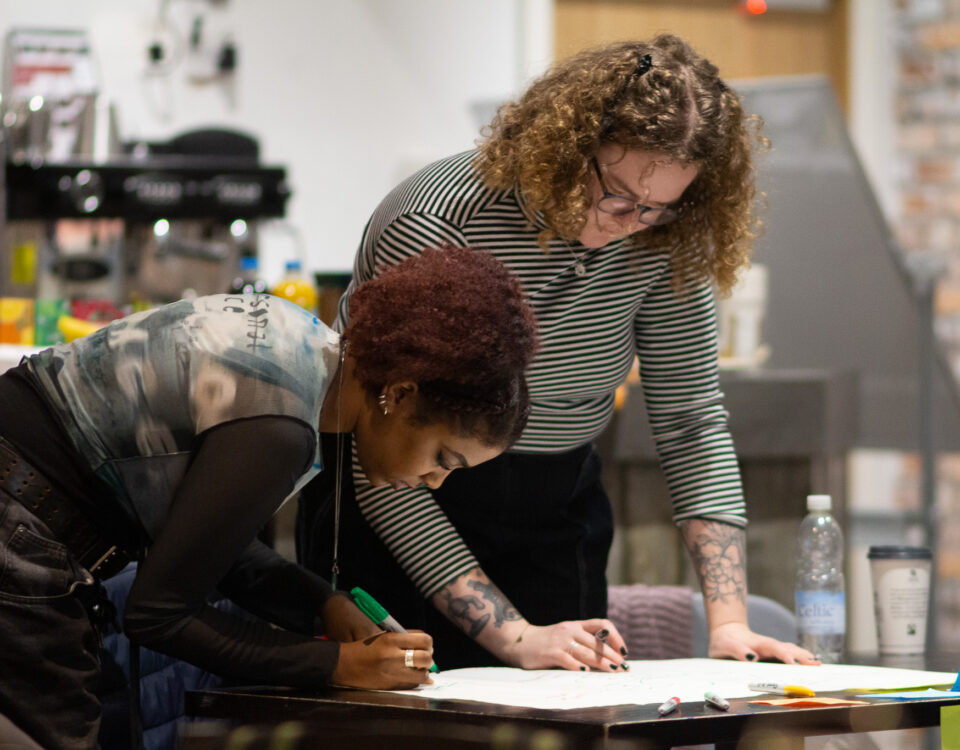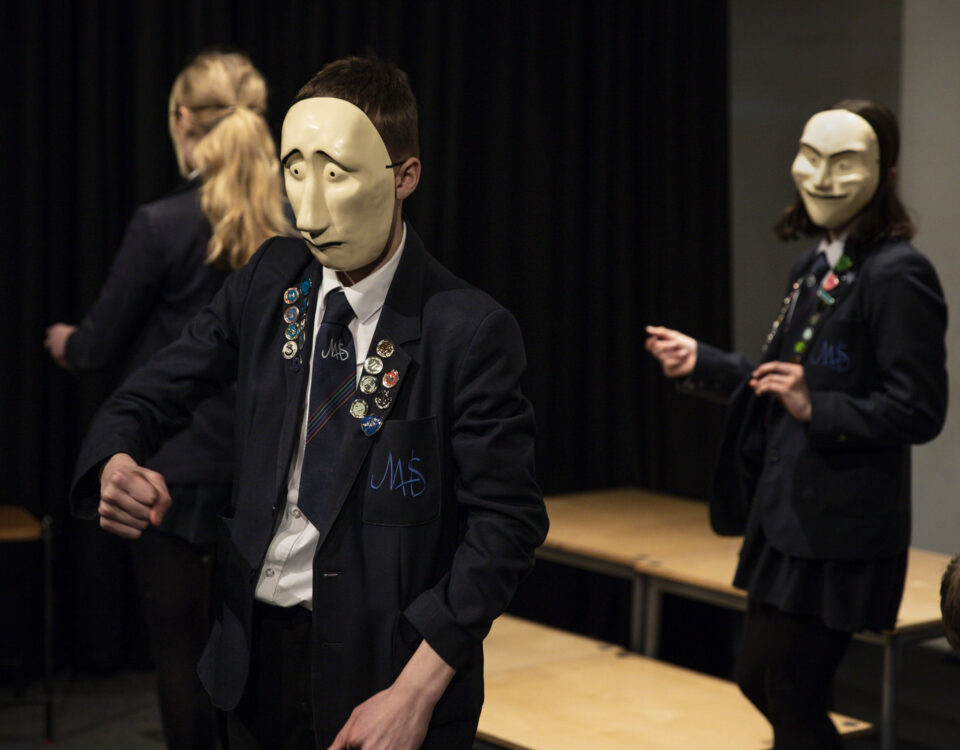
Bubble Up – Your Summer School Sorted
April 16, 2021
Proof Positive
April 28, 2021Imagine if...
...we had the courage to look beyond ‘catch-up’ and saw the potential of summer learning to re-engage young people with learning, with each other, with their communities and with future careers.
Imagine if partnership working saw collaborations between professionals, not just from education but from the arts and cultural sectors, from local businesses and community groups.
Imagine if summer schools felt relevant and purposeful, and not just cramming children full of missed learning.
Imagine if the way young people were ‘taught’ was open to innovation, where we could lose the constraints of an ‘ages and stages’ approach, where purposeful fun and real- life, authentic learning was integrated into personal and social development journeys, and where young people could try new things, grow their confidence and resilience and build new more positive mindset about themselves and their future.
I’m one of the lucky ones - I’ve seen all this, I so know how possible it is.
The strapline we use to describe our Bubble Up programme is ‘summer learning done brilliantly’. “That’s a mighty bold claim to make”. you might say. “What makes you so sure of Bubble Up’s brilliance, Curious Minds?”
Well, at the risk of sounding boastful, the answer is simply that, when it comes to creating amazing learning experiences, we know our stuff.
Across our team we have many years’ experience of working with artists and arts organisations to deliver creative learning programmes both in and out of school: we know what works because we’ve been there, done it and (literally) got the t-shirts.
Well, at the risk of sounding boastful, the answer is simply that, when it comes to creating amazing learning experiences, we know our stuff.
Across our team we have many years’ experience of working with artists and arts organisations to deliver creative learning programmes both in and out of school: we know what works because we’ve been there, done it and (literally) got the t-shirts.

When talk of summer schools for the incoming Year 7 age group first surfaced in February, and a package of funding was subsequently confirmed, it raised as many questions as it answered. After a year of disruption to their children's education, parents face the double-whammy of anxiety about how 'lost learning' might impact them long-term, versus the absolutely understandable need to know that their child's wellbeing is the priority. Was two extra weeks of 'summer school' the right answer? Likewise, teachers and school leaders can be completely forgiven for not jumping in with both feet. After all, no-one knew until guidance was issued at the end of March, what would be expected of them, their staff or their students at a time when they could normally expect to be at home or with family.
The deadline for secondary schools to express an interest in summer school funding now approaches at speed (Friday 7th May). The government has also made it clear that they expect schools to inform parents of the details of their offer before the May/June half term, so the time to take action - to begin planning, imagining and innovating - is now.
The deadline for secondary schools to express an interest in summer school funding now approaches at speed (Friday 7th May). The government has also made it clear that they expect schools to inform parents of the details of their offer before the May/June half term, so the time to take action - to begin planning, imagining and innovating - is now.
Most of the summer school t-shirts I have collected over the years are emblazoned with the UFA logo. The UFA (University of the First Age) was a pioneering charity that took out-of-school-hours and summer learning to the next level. Personally, I was lucky to be part of this brilliant organisation for over a decade, leading the UFA in schools across Bolton to meet the targeted learning and wellbeing needs of children and young people in a range of circumstances.
Our Bubble Up programme is inspired by UFA design principles, which have been used by thousands of educational professionals to deliver incredible summer learning experiences for children across the UK.
Our Bubble Up programme is inspired by UFA design principles, which have been used by thousands of educational professionals to deliver incredible summer learning experiences for children across the UK.
Manjit Shellis was part of the UFA National Team for twenty years and has been working with the Curious Minds team to design the Bubble Up training and resources for schools and arts practitioners. I asked Manjit to share with us some of her own experience of delivering out-of-school-hours learning programmes and the potential for UFA inspired summer schools to re-engage young people with learning after lockdown.
Enjoy!

Derri Burdon, CEO of Curious Minds
Dear past, thank you for all the lessons. Dear future, I am now ready.
I’ve been involved with developing and facilitating Summer Challenges since the mid 1990s, when the University of the First Age (UFA) started in Birmingham. At that time, summer holiday time was seen as an opportunity to do something different.
Adults experimented with pedagogy - exploring new approaches to learning, offering young people a week-long experience where they would immerse themselves in a learning journey. It was a very different experience for most of them. Especially when compared to the rigid, time-bound and narrow-focused way in which many schools interpreted the National Curriculum at that time.
Perhaps because of its intensive nature, summer clubs allowed us to develop a range of programmes that put into practice what we knew about effective learning. Funded by the DfE, UFA went on to work with over 50 local authorities. It rolled out extended learning and youth leadership programmes for over 750,000 young people and trained 7000 adults in a variety of settings, from schools and libraries to hospitals, arts organisations and children’s centres. Set up by Professor Tim Brighouse in the 1990s, UFA gained a national reputation for innovative practice in learning design and the development of young people’s leadership. At the heart of this work was hundreds of ‘challenge based summer schools’ across the country, funded by the New Opportunities fund.
Back then, one of our aims was to build a coherent and cohesive framework for out-of-hours learning within a local area, so summer schools became the highlight of year-round extra-curricular activities. We wanted to tap into the energy inherent in local areas through the creation of multi-disciplinary learning teams - making the link between a young person’s school and their local community. We also wanted to improve young people’s confidence and motivation to learn, thereby raising standards of achievement, linking with school improvement priorities and also community regeneration. Above all, we gave young people a voice and influence in their community by making learning more creative, more relevant and more enjoyable. City-wide summer schools gave young people a great opportunity to meet new people, to try new activities and to be responsible for managing their own experiences.
Teachers, artists, youth workers, local businesses, community organisations and the young people all came together and spilled out from the confines of schools into other places and spaces. Successful partnerships were developed with:
Adults experimented with pedagogy - exploring new approaches to learning, offering young people a week-long experience where they would immerse themselves in a learning journey. It was a very different experience for most of them. Especially when compared to the rigid, time-bound and narrow-focused way in which many schools interpreted the National Curriculum at that time.
Perhaps because of its intensive nature, summer clubs allowed us to develop a range of programmes that put into practice what we knew about effective learning. Funded by the DfE, UFA went on to work with over 50 local authorities. It rolled out extended learning and youth leadership programmes for over 750,000 young people and trained 7000 adults in a variety of settings, from schools and libraries to hospitals, arts organisations and children’s centres. Set up by Professor Tim Brighouse in the 1990s, UFA gained a national reputation for innovative practice in learning design and the development of young people’s leadership. At the heart of this work was hundreds of ‘challenge based summer schools’ across the country, funded by the New Opportunities fund.
Back then, one of our aims was to build a coherent and cohesive framework for out-of-hours learning within a local area, so summer schools became the highlight of year-round extra-curricular activities. We wanted to tap into the energy inherent in local areas through the creation of multi-disciplinary learning teams - making the link between a young person’s school and their local community. We also wanted to improve young people’s confidence and motivation to learn, thereby raising standards of achievement, linking with school improvement priorities and also community regeneration. Above all, we gave young people a voice and influence in their community by making learning more creative, more relevant and more enjoyable. City-wide summer schools gave young people a great opportunity to meet new people, to try new activities and to be responsible for managing their own experiences.
Teachers, artists, youth workers, local businesses, community organisations and the young people all came together and spilled out from the confines of schools into other places and spaces. Successful partnerships were developed with:
- The Birmingham City Transport Department
- The Council House
- Learning and Skills Council
- Playing for Success (and various sports clubs)
- The Young Peoples Parliament
- Local FE Colleges
- The University of Central England’s Technology Innovation Centre
- The Symphony Hall
- Mac and Rep Theatres
- The Botannical Gardens
- The National Trust
- Handsworth Fire Station
- Maverick TV
- Villan Radio
- Peugot Cars
- Waterstones Books
- Birmingham International Airport
- Wragge and Co. solicitors
All of these organisations were involved in some way with imaginative summertime provision. One example, in Birmingham, was indicative of the wider strategic force these summer schools could have. For 'Legal Eagles', a firm of solicitors (Wragge and Co.) offered their premises for a week as well as a group of trainees as personnel resource. Young people were challenged to represent a fictional pop group negotiating a big record deal. The success of this project illustrated how a simple investment of time and facilities by a local company could bring young people together from across a city, engage them all in a realistic and challenging work environment and leave them wanting more.
Another summer school worked with the National Trust to train young people as guides for one of their properties and, in so doing, not only developed leadership skills for the young people but also enabled them to put something back into the cultural heritage of the area.
Another summer school worked with the National Trust to train young people as guides for one of their properties and, in so doing, not only developed leadership skills for the young people but also enabled them to put something back into the cultural heritage of the area.
With the £200 million funding announced in February, this summer young people in England have the opportunity to benefit from all sorts of enrichment activities and academic opportunities. Particularly so, those who have suffered the most disruption to their education as a result of the pandemic. Sadly, UFA is no longer in operation but its legacy is the potential of summer schools to do far more than just facilitate ‘catch up’. If, that is, we are willing to learn from the best of our past. Let’s not try to reinvent the wheel. We can do so much more than this!
Manjit Shellis was part of the UFA National Team for twenty years. She currently sits on the advisory board for the Compassionate Education Foundation.
Manjit Shellis was part of the UFA National Team for twenty years. She currently sits on the advisory board for the Compassionate Education Foundation.

Manjit Shellis




